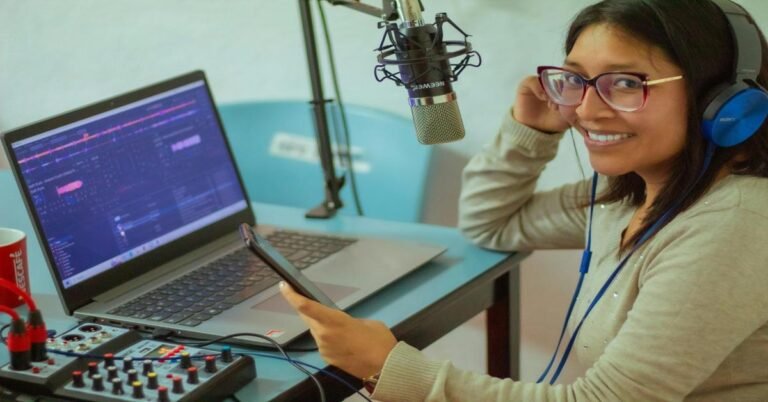The rise of AI is transforming content creation across the media landscape, presenting both challenges and opportunities. With AI tools now capable of generating text, images, and videos, traditional media is being forced to adapt to a fast-evolving digital environment. While the efficiency and scalability of AI-powered content creation tools, like the Sora AI video generator, are impressive, this shift raises critical questions about the future of traditional media. Is it truly at risk, or is this the beginning of a new hybrid era in media?
What is AI-Powered Content Creation?
AI-powered content creation uses algorithms to automate or assist in creating various types of media, from news articles and blog posts to video content and social media posts. The primary benefit of these tools is that they streamline production, making high-quality content accessible and scalable for businesses and individual creators alike.
Popular tools include AI text generators, AI video editors, and video creation apps, which provide brands and individuals with the resources to produce content efficiently and cost-effectively. For example, video content marketing has greatly benefited from AI tools, with platforms like Sora AI video generator enabling creators to produce engaging videos without a large budget or extensive technical skills.
Benefits of AI in Content Creation
- Efficiency
AI-driven tools significantly reduce the time required to produce content, allowing creators to meet the fast-paced demands of the internet.
- Cost-Effectiveness
AI tools are more affordable than hiring a full creative team, making it easier for small businesses and solo creators to compete.
- Scalability
AI allows brands to produce large quantities of content, quickly scaling their online presence.
- Personalization
AI algorithms can analyze audience data, creating highly targeted content that resonates with specific groups.
- Video Content Enhancements
The demand for video content marketing is rising, and AI tools like the Sora AI video generator make it easy for brands to create engaging videos for their audience.
The Challenges and Concerns
While AI offers clear benefits, its integration into content creation raises concerns, particularly regarding traditional media’s integrity and role.
- Quality and Authenticity
Traditional media is valued for its in-depth research and authentic storytelling. AI, however, sometimes lacks the nuance and depth that comes from human creativity.
- Ethical Concerns
AI algorithms are trained on large datasets, which can lead to biases in the content produced. Traditional media, with human editors, often has checks and balances to ensure fairness and accuracy.
- Job Displacement
AI’s efficiency poses a threat to traditional media jobs, potentially replacing roles such as copywriters, editors, and even journalists. Many fear that as AI advances, the media industry will see significant job losses.
- Loss of Originality
While AI can mimic creative styles, it struggles with producing truly original content. Traditional media, built on unique storytelling, may lose this defining characteristic if AI tools take over.
How Traditional Media is Adapting
Traditional media isn’t passively observing this shift; it’s actively integrating AI to maintain its relevance. Media companies are exploring hybrid models where AI assists journalists, not replaces them.
- Augmented Content Creation
AI tools support content creators by handling repetitive tasks, allowing journalists to focus on more complex narratives.
- Data-Driven Storytelling
AI helps analyze trends and audience preferences, allowing traditional media to produce relevant, data-informed stories.
- Audience Engagement
AI tools allow media companies to build more personalized relationships with their audience, from tailored news recommendations to interactive content experiences.
- Automated Social Media Strategies
AI is also enhancing traditional media’s social media presence. AI-powered social media and video apps streamline audience engagement, optimizing the impact of social posts and interactions.
The Hybrid Future of Content Creation
The future of media is likely to feature a combination of AI automation and human creativity. Rather than replacing traditional media, AI offers tools that augment human skills, allowing media professionals to work more efficiently without compromising quality.
As AI takes on data-driven and repetitive tasks, journalists, editors, and content creators will have more time to engage in creative and investigative storytelling. By embracing a hybrid approach, traditional media can leverage AI’s efficiency while preserving the authenticity and depth that have always defined high-quality journalism.
Conclusion: A New Era for Traditional Media
The rise of AI-powered content creation, including tools like the Sora AI video generator, has raised questions about the future of traditional media. However, rather than marking an end, AI signals the beginning of a new era where technology and human creativity coexist.
AI is reshaping the media industry by making content creation faster, more affordable, and scalable. However, the unique perspectives, creativity, and authenticity of human creators remain essential. With responsible and strategic use of AI, traditional media can continue to thrive, delivering content that is both innovative and grounded in human experience. As we move forward, it’s clear that the future of media will benefit from a careful balance between AI-driven efficiency and the irreplaceable qualities that humans bring to the art of storytelling.
